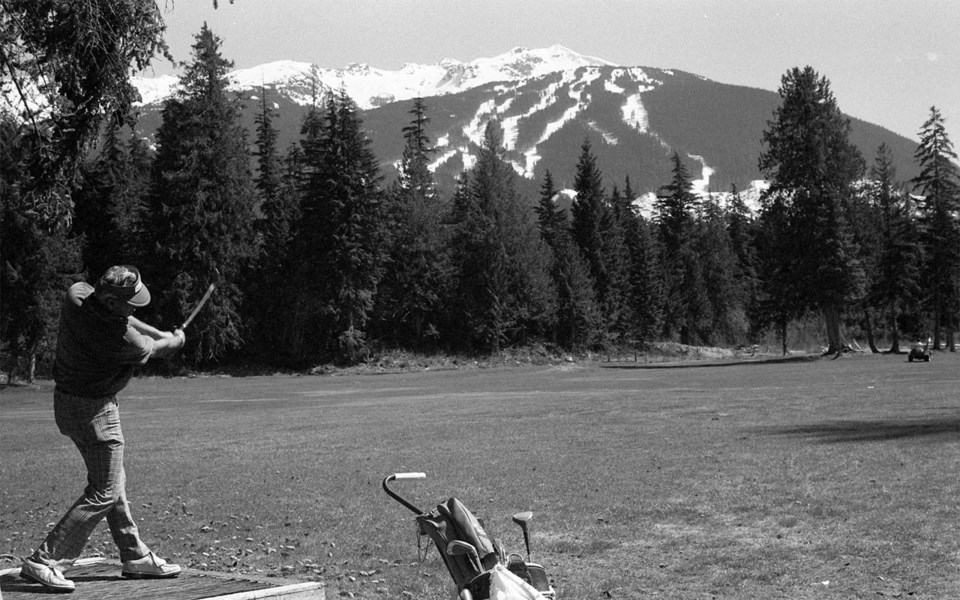At the moment, Whistler's golf courses are an unlikely place to find a game of golf or even a determined player at the driving range. Instead cross-country skiers, snowshoers and, in the case of the Whistler Golf Club, dog walkers can be found taking advantage of the layer of snow on top of the greens. In just a couple of months, however, the skis and dogs will be replaced by carts and clubs.
Looking through one of the books on the museum's reference shelf I came across The Whistler Handbook containing a summary of the courses found in Whistler, written by Doug Sack in 1993. Sack was the first sports editor for the Whistler Question; he started in 1984 and held the post for 18 years. During that time he also contributed to other publications, including The Whistler Handbook put together by Bob Colebrook, Kevin Raffler and Jennifer Wilson in the early 1990s.
In the golf section of the Handbook Sack covers all of the courses from Furry Creek to Pemberton, including a few that hadn't yet opened or were still under construction. His commentary, like most of the book, is informative while entertaining.
The oldest golf course in the corridor is the Squamish Valley, first opened in 1967. According to Sack it was built "by community-minded loggers and businessman" and then renovated under the direction of Robert Muir-Graves in 1992.
The next course to open in the area was the Whistler golf course. It originally opened with nine holes, with the full 18-hole-course, designed by Arnold Palmer, officially opened in the summer of 1983. Ten years later, the course was reportedly busy with tournaments and visitors, making walk-on tee times almost impossible except for "weekday twilights." This course is probably the most-photographed in the museum collections, as the Question covered all aspects of its construction including the golf lessons Palmer once gave mascot Willie Whistler in 1981 on the nine-hole course.
By 1993 the Pemberton Valley Golf Club, designed by Boyd Barr and opened in 1989, was described by Sack as having "two distinctive nines, one in the open with lakes and one in the trees" offering a "diverse golfing experience." In only four years the course had developed a reputation as "the most popular course for locals and the most relaxed for visitors."
Unlike the Pemberton Valley course, neither the Fairmont Chateau Golf Course nor the course in Furry Creek, both newly opened in 1993, were described by Sack as "relaxing." According to Sack: "You know a golf course is tough when you're standing on the first tee and you hear one of the assistant pros walking off the 18th green bragging to his co-workers about almost breaking 80."
As of 1993, Big Sky and Nicklaus North were under construction, set to open in 1994 and 1995 respectively.
The golf courses of Whistler are only one aspect covered in The Whistler Handbook, which includes sections on the community, the resort services, winter sports and more. Anyone who experienced Whistler in the early 1990s will find the contents familiar, whether they golf or not. The 1990s are not often highlighted at the museum (in part because the decade still seems recent, despite ending 19 years ago); having resources like The Whistler Handbook in our collection ensures that the 1990s will be preserved as part of Whistler's history.




